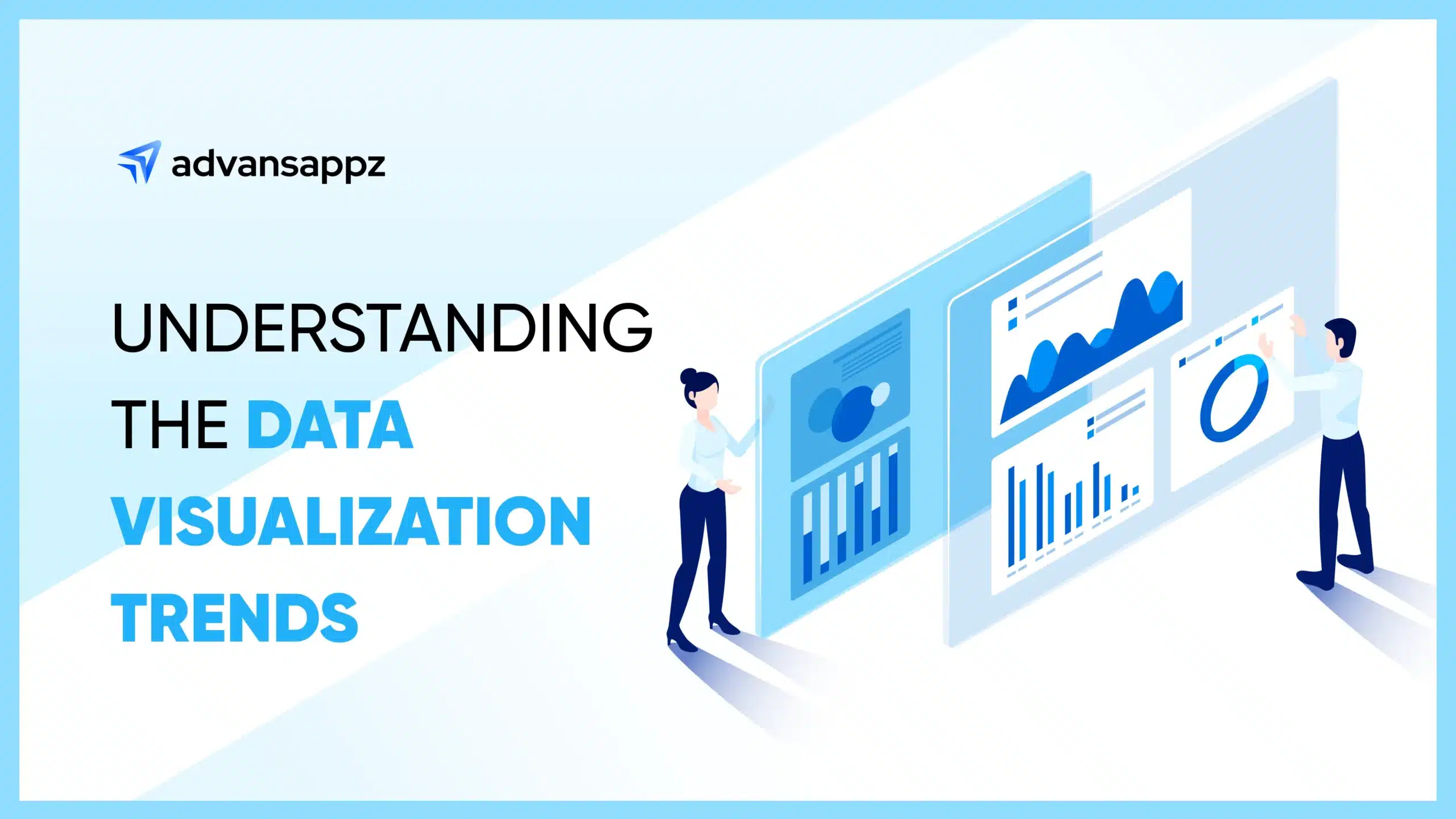Data Management
Unleashing the Power of Data Management for Your Business
Our team of experts provides comprehensive data management solutions that are designed to help you make the most of your data. With our software consulting and IT consulting services, we can help you streamline your data management processes, resulting in improved efficiency and better decision-making.

Transforming Data into Actionable Insights
Our data management solutions are designed to meet the unique needs of your business. We offer effective data management, independent databases, improved analytics, and smart searches to help unlock your data’s value. Our team of experts has extensive experience in the field and leverages cutting-edge technology to deliver customized solutions that drive results.

Unleashing the Potential of Data Science
At advansappz, we have extensive capabilities in data management. We work with you to understand your unique needs and provide tailored solutions that drive results.
Data Science Services
advansappz utilizes machine learning and predictive analytics to gain deeper insights into your data and develop customized data models to support your specific business requirements.
Big Data Services
Our data management technologies can efficiently handle large amounts of data. We implement big data technologies such as Hadoop and Spark to process your data and uncover hidden patterns and relationships in your data.
Tableau
Our advanced data management tools allow you to visualize your data to gain deeper insights and make informed decisions. We empower your team to explore and analyze data on their own.
Enterprise Intelligence
Make informed decisions based on real-time insights into your data. Enhance collaboration and communication between teams with centralized data management
Power BI
Our data management capabilities transform data into interactive visualizations and reports. We enance data discovery and analysis with intuitive data management tools
Frequently Asked Questions
Do you have additional questions?
Data management refers to the process of collecting, organizing, storing, and utilizing data in a systematic and controlled manner. It involves various activities and strategies aimed at ensuring data accuracy, integrity, security, accessibility, and usability throughout its lifecycle.
The key components of data management include:
Data Collection: The process of gathering data from various sources, such as databases, applications, sensors, or external entities.
Data Storage: Storing data in a structured manner, typically in databases, data warehouses, or cloud storage, ensuring efficient retrieval and preservation of data.
Data Integration: Combining data from different sources to create a unified view, ensuring consistency and eliminating redundancy.
Data Quality: Ensuring the accuracy, completeness, and reliability of data through data cleansing, validation, and error detection techniques.
Data Security: Implementing measures to protect data from unauthorized access, breaches, or data loss, including encryption, access controls, and backup systems.
Data Governance: Establishing policies, standards, and processes to manage data assets, ensuring compliance with regulations, privacy, and ethical considerations.
Data Analytics: Applying techniques such as data mining, statistical analysis, and machine learning to derive insights, patterns, and meaningful information from data.
Data Lifecycle Management: Managing data throughout its lifecycle, including creation, usage, archival, and eventual disposal or retention according to legal and business requirements.
There are four primary types of data management:
Database Management: This type of data management focuses on the storage, organization, and retrieval of structured data within a database system. It involves designing and maintaining databases, defining data schemas, managing data access, and ensuring data integrity and security.
Document Management: Document management involves the organization, storage, version control, and retrieval of unstructured data in the form of documents, files, and content. It includes features like indexing, metadata management, document sharing, collaboration, and document lifecycle management.
Data Warehousing: Data warehousing focuses on consolidating and integrating data from various sources into a centralized repository, known as a data warehouse. This type of data management involves transforming and aggregating data to support business intelligence, reporting, and analytics. Data warehousing facilitates the extraction of valuable insights from large volumes of historical data.
Master Data Management: Master data management (MDM) aims to establish a single, authoritative source of accurate and consistent master data across an organization. Master data refers to core data entities, such as customers, products, and locations. MDM involves creating and managing data models, defining data governance policies, resolving data conflicts, and ensuring data quality and consistency across systems and departments.
The five stages of data management are as follows:
Data Collection: This stage involves gathering data from various sources, such as databases, sensors, applications, or external entities. It includes capturing and recording data in its raw form, ensuring that it is accurate, complete, and relevant to the desired objectives.
Data Storage: Once collected, data needs to be stored in a structured and secure manner. This stage involves selecting appropriate storage technologies and platforms, such as databases, data warehouses, or cloud storage systems. The goal is to ensure efficient data retrieval, scalability, and data protection.
Data Processing: In this stage, collected data is transformed, cleansed, and organized to make it usable and valuable. Data processing may involve tasks such as data cleansing, validation, aggregation, integration, and enrichment. The aim is to improve data quality, eliminate inconsistencies, and prepare the data for analysis or other downstream processes.
Data Analysis: Once data is processed, it can be analyzed to extract insights, patterns, and meaningful information. Data analysis techniques may include data mining, statistical analysis, machine learning, or other analytical approaches. The objective is to uncover trends, make predictions, identify relationships, and derive actionable insights from the data.
Data Governance: Data governance is the stage where policies, standards, and processes are established to manage and control data effectively. It involves defining data ownership, roles, and responsibilities, establishing data quality rules, ensuring compliance with regulations and privacy requirements, and implementing data security measures. Data governance ensures that data is managed in a consistent, secure, and compliant manner throughout its lifecycle.
Data management tools refer to software applications or platforms designed to assist in various aspects of managing data effectively. These tools provide functionalities and features that aid in organizing, storing, processing, securing, and analyzing data, enabling organizations to efficiently handle their data assets.
Data management tools can encompass a wide range of applications and technologies, including:
Database Management Systems (DBMS): DBMS tools enable the creation, maintenance, and manipulation of structured data in databases. They provide capabilities for data storage, retrieval, querying, and administration, ensuring efficient data management and access.
Data Integration Tools: These tools facilitate the integration and consolidation of data from diverse sources into a unified view. They assist in data transformation, mapping, and loading across systems or databases, enabling organizations to work with integrated data effectively.
Data Warehousing Tools: Data warehousing tools support the design, construction, and management of data warehouses. They facilitate data extraction, transformation, and loading (ETL) processes, data modeling, and analysis, empowering organizations to leverage data for business intelligence and decision-making.
Master Data Management (MDM) Tools: MDM tools help establish and maintain consistent and accurate master data across an organization. They enable data governance, data quality management, and data synchronization, ensuring a single, reliable source of master data for operational and analytical purposes.
Data Governance Tools: These tools assist in implementing and enforcing data governance policies and frameworks. They provide functionalities for defining data standards, metadata management, data lineage, data stewardship, and compliance management.
Data Quality Tools: Data quality tools help assess, improve, and monitor the quality of data. They provide capabilities for data profiling, data cleansing, data validation, and data enrichment, ensuring data accuracy, completeness, and reliability.
Partner with the Experts in Data Management
Get in Touch with advansappz for Your Data Management Needs





